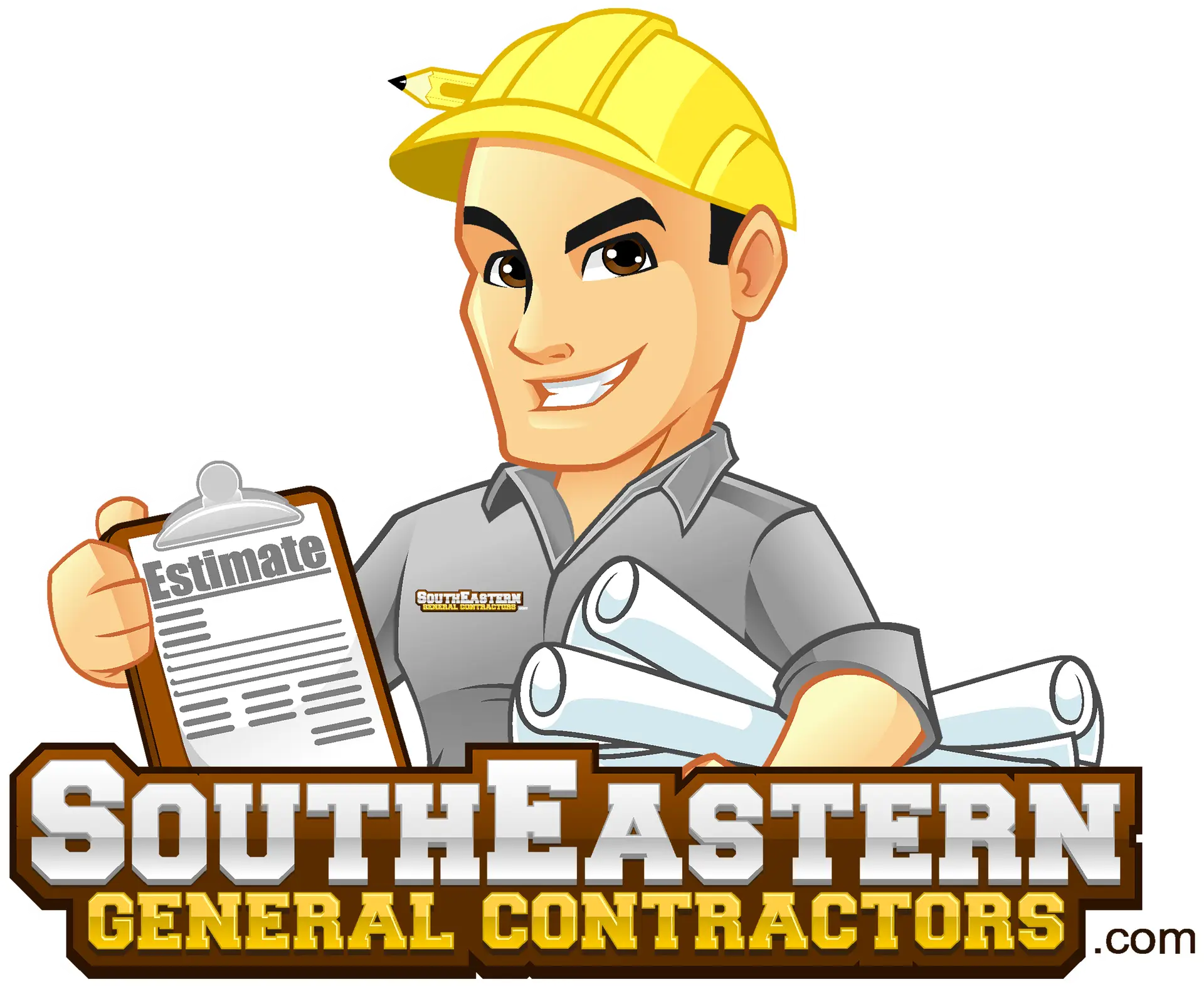
8 Essential Questions to Ask General Contractors Before You Hire
Choosing a general contractor is one of the most significant decisions you'll make, whether you're crafting a custom home in Fayetteville, launching a commercial venture in Lumberton, or undertaking a major renovation. The right partner doesn't just build structures; they build trust, relationships, and legacies. But how do you separate the proven professionals from the rest? It begins with asking the right questions.
At South Eastern General Contractors (SEGC), with over 21 years of proven results and a legacy built on integrity, we believe an educated client is an empowered client. Our experience as a Native American-owned, 8(a), and HUBZone certified firm has taught us that the quality of the conversation directly predicts the quality of the final outcome. Hiring a contractor can feel like a high-stakes interview where you’re the one making the final call. This guide is your ultimate interview prep sheet.
This listicle is more than a simple checklist; it's a blueprint for forging a successful partnership, infused with the expertise we've cultivated right here in North Carolina. We'll walk you through the most critical questions to ask general contractors, explaining not just what to ask, but why each question matters and what a quality answer looks like. Our goal is to empower you to find a builder who will honor your vision, protect your investment, and deliver a project you can be proud of for decades to come.
1. Are you licensed, bonded, and insured for my specific project?
Think of this as the holy trinity of contractor vetting. It’s not just a box to check; it’s the non-negotiable foundation of your project’s security and your own peace of mind. A simple "yes" isn't enough. Among the most critical questions to ask general contractors, this one requires proof, and a top-tier firm will be eager to provide it. This isn't about distrust; it’s about starting a professional relationship on a transparent, secure footing.
At SEGC, we lead with transparency by proactively providing clients with a full documentation package, including our North Carolina General Contractor license, proof of bonding, and comprehensive certificates of insurance. It’s the first step in building a trusting relationship, ensuring you know you’re protected by a firm that meets and exceeds all industry and federal standards, a commitment that comes with our 8(a) and HUBZone certifications.

Why It Matters: Real-World Scenarios
The difference between a credentialed contractor and an unverified one can be the difference between a successful project and a financial disaster. For example, a homeowner in Fayetteville hired an unlicensed individual for a new deck. When it collapsed due to improper footings, the homeowner was left with a hefty repair bill and no legal recourse.
In contrast, SEGC’s comprehensive insurance was a project-saver during a commercial build in Lumberton. A sudden, severe storm caused significant water damage to materials staged on-site. Because we were fully insured for the project's scope, the cost was completely covered without impacting the client’s budget or timeline. This is the level of protection our clients deserve.
How to Verify (And What to Look For)
Don’t just take their word for it. Here’s your actionable insight:
- Licensing: This proves competency. Ask for the contractor's license number and verify it on your state's official licensing board website.
- Bonding: This protects you if the contractor fails to complete the job or pay subcontractors. Ask for a copy of the surety bond.
- Insurance: This covers accidents and damage. Request a certificate of insurance (COI) and call the provider to confirm the policy is active and the coverage limits are sufficient for your project’s value.
2. Can you provide references from recent projects?
While a contractor's portfolio shows the finished product, references reveal the entire story of how they got there. Asking for and thoroughly checking references is your behind-the-scenes look at their process, communication, and reliability. This is one of the most revealing questions to ask general contractors, as a confident, high-quality builder will have a list of happy clients ready to sing their praises. A hesitant or empty-handed response is a major red flag.
At SEGC, our greatest asset is our reputation, built over 21 years of successful projects in communities like Fayetteville and Lumberton. We don't just provide a list; we connect you with past clients whose projects mirror your own in scope and style, ensuring the reference is truly relevant to your needs. This transparency is a cornerstone of our commitment to building lasting client legacies.

Why It Matters: Real-World Scenarios
The insights you gain from a past client are invaluable. For instance, a local business owner almost hired a contractor with a flashy website but decided to call their references first. They discovered the contractor was notorious for disappearing for days and failing to clean the job site, saving them from a major headache. Checking references is a vital step when you are trying to learn more about how to find a good contractor.
In contrast, a new homeowner building a custom home near Fort Bragg was nervous about the process. We connected them with a recent military family we built for. Hearing firsthand about our structured communication, adherence to budget, and how we handled an unexpected supply delay with proactive solutions gave them the complete confidence to move forward. This is the trust we build in our local communities.
How to Verify (And What to Look For)
Get more than just a name and number. Dig deep with these actionable insights:
- Ask Specific Questions: Go beyond "Were you happy?" Ask: "How was the communication? Did they stick to the budget and timeline? How did they handle unexpected issues? Was the job site kept clean and safe?"
- Recency is Key: Prioritize references from projects completed within the last year. This reflects the contractor's current team, quality, and business practices.
- Ask the Ultimate Question: "Knowing what you know now, would you hire them again?" The answer to this is often the most telling.
- Check Online Reviews: Supplement formal references by checking reviews on Google, Yelp, and industry-specific sites for a broader view of their reputation.
3. What is your estimated timeline and payment schedule?
Money and time: the two resources everyone wishes they had more of during a construction project. Asking about the timeline and payment schedule isn't just about logistics; it’s a direct window into a contractor's planning ability and financial stability. A vague answer is a red flag, while a detailed, phase-based plan shows professionalism. Among the most practical questions to ask general contractors, this one sets the rhythm for the entire project and protects you from major financial pitfalls.
At SEGC, we believe in radical transparency for both project timelines and payment milestones. Our proposals include a detailed project schedule and a clear payment structure tied directly to tangible progress. For over two decades, we've honed this process on projects across Fayetteville and Lumberton, ensuring clients feel confident and in control, knowing exactly what to expect and when.

Why It Matters: Real-World Scenarios
A clear schedule prevents project limbo. A local business owner hired a contractor for a retail space remodel with a verbal timeline. Weeks turned into months with little progress, costing the owner thousands in lost revenue. A defined schedule with penalty clauses could have incentivized completion or provided grounds for termination.
In contrast, our detailed phasing was key to a successful custom home build for a military family relocating to the Fayetteville area. By tying payments to specific completions (foundation poured, framing complete, etc.), the clients knew their investment was secure at every stage. This eliminated financial anxiety and allowed them to focus on the excitement of their new home—a core part of the SEGC client experience.
How to Verify (And What to Look For)
Clarity is your best defense against project chaos and financial risk. Here are your actionable insights:
- Detailed Timeline: Get a written schedule outlining key phases and estimated completion dates for each. A typical kitchen remodel might take 6-12 weeks. Build in a 10-15% buffer for unexpected issues.
- Payment Schedule: This must be tied to completed work, not arbitrary dates. The National Association of the Remodeling Industry (NARI) advises against large upfront down payments. Never pay in full upfront.
- Define "Complete": The contract should specify exactly what constitutes "completion" for each payment milestone to avoid disputes. For example, is "electrical rough-in" finished when the wires are pulled or when the inspection is passed?
- Penalty Clauses: For time-sensitive projects, consider including a clause that outlines modest penalties for significant, unexcused delays. This shows the contractor is serious about their timeline.
4. Do you handle permits and inspections?
Navigating the bureaucratic maze of building permits and inspections can feel like a full-time job. A professional general contractor doesn't just build; they manage the entire process, ensuring every nail, wire, and pipe is fully compliant with local and state codes. This is one of the most practical questions to ask general contractors because it reveals their experience with local regulations and their commitment to a project's long-term legality and safety. A contractor who confidently handles this is saving you from potential headaches, fines, and future resale problems.
At SEGC, we view permit and inspection management as a core component of our service. Our deep-rooted relationships with building departments in Fayetteville, Lumberton, and across North Carolina mean we navigate the process efficiently. As a HUBZone certified firm, we are deeply embedded in our communities and understand local requirements intimately. We handle all filings, schedule every necessary inspection, and ensure your project flows smoothly without costly delays.

Why It Matters: Real-World Scenarios
Cutting corners on permits is a recipe for disaster. Imagine completing a beautiful home addition, only to have the city order you to tear it down because the proper structural permits were never pulled. This isn't a scare tactic; it's a reality for homeowners who hire contractors that bypass the rules. Unpermitted work can also void your homeowner's insurance and create major roadblocks when you decide to sell your property.
In contrast, our meticulous permit handling was vital for a recent commercial project in Fayetteville. The project required complex electrical and HVAC permits with multiple inspection phases. By managing this process proactively, SEGC ensured the work was approved at every stage, preventing any work stoppages and keeping the multi-million dollar project on its aggressive schedule, protecting the client's investment and timeline.
How to Verify (And What to Look For)
Get clear answers to ensure you're covered. Here’s your actionable insight:
- Process Ownership: Confirm they will handle the entire process, from application to final sign-off. Ask about their relationship and track record with your local building department.
- Cost Transparency: Ask who pays for the permit fees. Typically, this cost is passed through to the homeowner, but it should be clearly itemized in your contract.
- Documentation: Request that you receive copies of all submitted permits and, most importantly, the final inspection reports.
- Final Payment: Never make your final payment until you have proof that the final inspection has been passed and the project is officially closed out by the city or county.
5. What warranty do you provide on your work?
A warranty is more than just a piece of paper; it’s a contractor’s signed promise that they stand behind their craftsmanship long after the final check has cleared. This question reveals a firm's confidence in their work and materials, providing you with a crucial safety net against future defects. A vague or non-existent warranty is a major red flag, while a clear, comprehensive one is a hallmark of a professional who builds to last. Among the essential questions to ask general contractors, this one protects your investment for years to come.
At SEGC, we build legacies, not just structures, which is why we provide a robust, written warranty with every project. We want our Fayetteville and Lumberton clients to have absolute confidence that their investment is secure. Our commitment doesn't end on the final walkthrough; we stand behind our work, ensuring your peace of mind is as durable as the home or facility we’ve built for you. This is how we've delivered proven results for over 21 years.
Why It Matters: Real-World Scenarios
The right warranty can save you from significant stress and expense. Consider a commercial client who had a new roof installed by a different contractor. Six months later, a persistent leak developed. The contractor was unresponsive, and their "warranty" was a verbal promise that proved worthless, forcing the owner to pay for expensive repairs out-of-pocket.
In contrast, an SEGC custom home client in Fayetteville noticed a settling-related drywall crack almost a year after moving in. They contacted us, and under our comprehensive one-year workmanship warranty, we dispatched a team to professionally repair and repaint the area at no cost. This is the difference a formal, honored warranty makes: turning a potential problem into a simple, hassle-free fix that demonstrates true client commitment.
How to Verify (And What to Look For)
A handshake isn't a warranty. You need specifics in writing. Here are your actionable insights:
- Get it in Writing: Insist that all warranty terms, including coverage periods and limitations, are explicitly detailed in your contract.
- Understand Coverage: Know what is covered (workmanship, materials) and what isn't (normal wear and tear, owner-caused damage). Ask how manufacturer warranties for items like appliances or HVAC units are handled.
- Check Transferability: If you might sell your property, ask if the warranty can be transferred to the new owner. This can be a valuable selling point.
- Clarify the Process: Understand the exact steps to file a claim. Who do you call? What is the expected response time? A clear process shows the contractor has a plan to uphold their promise.
6. Who will supervise the work and what subcontractors will you use?
Knowing who orchestrates the daily symphony of your project is paramount. This isn't just about having a point of contact; it's about understanding the chain of command, quality control, and the expertise being brought onto your property. A great general contractor is like a skilled conductor, and this question, a crucial one among the questions to ask general contractors, pulls back the curtain on their leadership style and the orchestra of tradespeople they employ. Vague answers here are a red flag, signaling potential for chaos, miscommunication, and inconsistent quality.
At SEGC, we assign a dedicated, experienced project manager to every build. This individual is your direct liaison, responsible for daily on-site supervision, scheduling our trusted network of subcontractors, and ensuring every detail aligns with the project plan. Our process is built on clarity and accountability, with local leadership you can trust to oversee your investment personally.
Why It Matters: Real-World Scenarios
The difference between dedicated supervision and a hands-off approach can make or break a project. For instance, a commercial client in Fayetteville hired a firm where the main contractor was rarely on-site. This led to subcontractors misinterpreting blueprints, causing costly rework and significant delays. The project lacked a central, accountable leader to enforce standards.
In stark contrast, during a complex custom home build near Fort Bragg, our SEGC project manager’s daily presence was critical. He identified a potential clash between the HVAC ductwork and a custom ceiling feature early on, coordinating with the HVAC and framing subcontractors for a swift, no-cost adjustment. This proactive supervision prevented a major aesthetic and functional issue down the line, a hallmark of our commitment to quality.
How to Verify (And What to Look For)
Get specific about the team structure and the specialists involved with these actionable insights:
- Project Supervision: Ask who the dedicated supervisor or project manager will be. Will they be on-site daily? What is their experience level?
- Subcontractor Vetting: How does the contractor select and vet their subcontractors? Reputable GCs have long-standing relationships with skilled, insured, and reliable trades. Ask to see their subcontractors' credentials and insurance.
- Communication Protocol: Clarify the communication chain. If you have a question about plumbing, do you call the plumber or your project manager? A single point of contact prevents confusion.
- Backup Plans: What happens if a key subcontractor becomes unavailable? A professional contractor has a deep bench of qualified trades to prevent project stalls.
7. How do you handle change orders and unexpected issues?
Even the most meticulously planned project can encounter surprises. A change order isn't a sign of poor planning; it's a structured response to the unexpected, from discovering unforeseen structural issues to a client's brilliant mid-project idea. This is one of the most revealing questions to ask general contractors, as their answer showcases their communication style, transparency, and problem-solving abilities. A vague or dismissive response is a major red flag.
At SEGC, we view change orders not as problems, but as managed decisions. We have a formalized, digital process that ensures every change is documented, priced transparently, and approved by you before any work proceeds. This system, honed over 21+ years of building in communities like Fayetteville, prevents budget shock and keeps the project moving forward collaboratively. This is client trust in action.
Why It Matters: Real-World Scenarios
The National Association of the Remodeling Industry (NARI) notes that change orders are common, and how they're managed defines the client experience. Imagine opening a wall for a simple kitchen plumbing update only to find outdated, unsafe electrical wiring that must be replaced. An unprepared contractor might pause work indefinitely or present a surprise bill.
Contrast that with an SEGC commercial project in Fayetteville where unforeseen soil instability required a foundation redesign. Our process was immediate: we presented the client with a clear analysis, engineered options with detailed cost breakdowns, and a revised schedule. The client made an informed decision, the change was formally approved, and the project continued without conflict or confusion. This proactive approach is key to successfully managing complex construction projects.
How to Verify (And What to Look For)
A professional's process should be crystal clear. Demand these actionable insights:
- Formal Process: Ask to see their change order form. It should require a detailed description of the change, a cost breakdown, the impact on the schedule, and a signature line for your approval.
- Contingency Planning: A good contractor will advise you to build a 10-20% contingency fund into your budget from day one. This isn't for them to spend; it's your safety net for these exact situations.
- Communication Protocol: Who will discuss changes with you? How quickly will you be notified of an issue? Insist on a single point of contact and a commitment to immediate communication.
8. Can you provide a detailed written estimate and contract?
A verbal agreement or a price scribbled on a napkin won't cut it when you're building a legacy. The detailed written estimate and the legally binding contract are the twin pillars of a transparent, professional construction project. This documentation goes beyond just a price; it’s the project’s official rulebook, outlining every material, labor cost, and responsibility. Among the most vital questions to ask general contractors, this one reveals their professionalism and commitment to clarity. A handshake is for greetings; a contract is for business.
At SEGC, we believe a project's success is built on clear communication from day one. Our proposals are exhaustive, breaking down costs and timelines with precision. The subsequent contract isn’t just a formality; it’s our written promise to you, detailing every aspect of the project to ensure there are no surprises, only exceptional results built on a foundation of trust.
Why It Matters: Real-World Scenarios
The difference between a vague quote and a detailed contract can be tens of thousands of dollars and months of headaches. Consider a homeowner who accepted a simple "total cost" verbal quote for a kitchen remodel. Midway through, they were hit with unexpected charges for "upgraded" materials and "additional labor" that were never discussed, turning their dream kitchen into a financial nightmare.
In sharp contrast, for a recent custom home build in Fayetteville, our SEGC contract specified the exact model of every appliance and the grade of every piece of lumber. When a supplier issue arose with the specified flooring, the contract's clear change-order process allowed us to collaborate with the client, select an alternative they loved, and document the cost adjustment transparently, keeping the project on track and on budget.
How to Verify (And What to Look For)
Don't just skim the documents; scrutinize them. A great contract protects everyone involved. Here are your actionable insights:
- Detailed Estimate: Look for a line-item breakdown. It should list specific materials (brands, model numbers), labor costs, permit fees, and allowances for items you'll select later.
- Comprehensive Contract: Ensure it includes a clear scope of work, a payment schedule tied to project milestones, a projected start and completion date, a formal change-order process, and clauses on dispute resolution.
- Legal Review: For significant projects, like a new commercial build or a custom home, having an attorney review the contract is a wise investment that provides ultimate peace of mind.
- All Promises in Writing: If you discussed a specific detail or feature, make sure it’s explicitly written into the final contract. If it's not in the document, it’s not in the deal.
8 Essential Questions to Ask General Contractors
| Item | Implementation Complexity 🔄 | Resource Requirements ⚡ | Expected Outcomes 📊 | Ideal Use Cases 💡 | Key Advantages ⭐ |
|---|---|---|---|---|---|
| Are you licensed, bonded, and insured? | Moderate – Requires verification of multiple documents and coverages | Moderate – Access to databases and document review | High – Legal protection, financial security, liability coverage | All construction and remodeling projects requiring legal compliance | Legal and financial protection; professional credibility; risk mitigation |
| Can you provide references from recent projects? | Low – Simple to request and verify but may need calls/visits | Low – Time to contact references | Medium – Insight into work quality and reliability | Hiring for projects needing proven track records | Direct customer feedback; reveals work quality and professionalism |
| What is your estimated timeline and payment schedule? | Moderate – Needs detailed project planning and payment structuring | Moderate – Requires planning tools and document preparation | High – Clear expectations, financial protection, accountability | Projects with strict schedules and budget concerns | Realistic scheduling; milestone-based payments; financial safety |
| Do you handle permits and inspections? | Moderate to High – Involves understanding codes, obtaining permits | Moderate – Time and knowledge to manage permits/inspections | High – Legal compliance, safety, reduces homeowner liability | Projects requiring official permits and inspections | Ensures compliance; protects property value; reduces legal risks |
| What warranty do you provide on your work? | Low – Providing terms and documentation is straightforward | Low – Requires clear documentation | Medium to High – Protection against defects, homeowner peace of mind | Projects where quality assurance and repairs matter | Workmanship guarantees; homeowner protection; cost savings |
| Who will supervise the work and what subcontractors will you use? | Moderate – Coordination of supervisors and subcontractors | Moderate – Requires managing multiple parties | High – Quality control, communication, clear accountability | Complex projects with multiple trades involved | Single point of contact; quality oversight; specialized expertise |
| How do you handle change orders and unexpected issues? | Moderate – Requires formal processes and communication protocols | Moderate – Time for documentation and review | Medium – Controls costs and project scope, prevents disputes | Projects prone to scope changes and unforeseen issues | Clear cost control; transparent communication; professional handling |
| Can you provide a detailed written estimate and contract? | High – Needs comprehensive documentation including legal terms | Moderate to High – Time and expertise to prepare detailed documents | High – Legal protection, clear expectations, budget adherence | All projects requiring legal and financial clarity | Legal safeguard; detailed scope and cost control; dispute reduction |
Your Blueprint for a Successful Partnership
Navigating the world of construction can feel like trying to read a blueprint in the dark. But armed with the right questions, you suddenly have the floodlights on, illuminating every corner of the process. Think of this list not just as a checklist, but as your conversational toolkit. The questions you’ve just reviewed about licensing, references, timelines, and change orders are the fundamental building blocks of a successful and stress-free construction project. They shift you from being a passive client to an empowered, informed partner.
A truly professional contractor won't just tolerate these questions; they will welcome them. Why? Because a prepared client is a great client. It signals that you value clarity, respect the process, and are just as committed to a high-quality outcome as they are. When a contractor provides clear, confident, and verifiable answers, it demonstrates their transparency, experience, and integrity. This initial dialogue sets the tone for the entire relationship, creating a foundation of mutual respect that can weather any unexpected storm.
From Questions to Confidence
Mastering these questions to ask general contractors is about more than just vetting candidates; it’s about establishing control and peace of mind. You are not just hiring a crew to hammer nails; you are entrusting someone with a significant investment and a personal vision. The answers you receive will paint a vivid picture of a contractor's communication style, problem-solving skills, and overall professionalism.
Key Takeaway: The goal isn't to catch a contractor in a "gotcha" moment. The goal is to find a partner whose answers align perfectly with your project's needs and your personal standards for communication and quality.
Building Legacies, Not Just Structures
For over 21 years, South Eastern General Contractors has built a reputation in Fayetteville, Lumberton, and beyond by not just answering these questions but embodying the principles behind them. We operate on a foundation of total transparency because we believe our clients are our partners. Our extensive portfolio, from bespoke legacy homes for military families to complex commercial and government projects, is a testament to this collaborative approach.
As a company with Native American-owned, 8(a), and HUBZone certifications, we bring a unique perspective and proven reliability to every job site. We understand that whether we’re building a family’s dream home or a critical piece of community infrastructure, we are not just constructing a building; we are helping to build a legacy. The next step is yours to take. Transform this knowledge into action and begin the conversation that will turn your vision into a lasting reality.
Are you ready to partner with a team that has all the answers? At South Eastern General Contractors, our process is built on the clarity and trust you deserve. Visit our website at South Eastern General Contractors to see our work and learn how we can bring our proven expertise to your next project.



